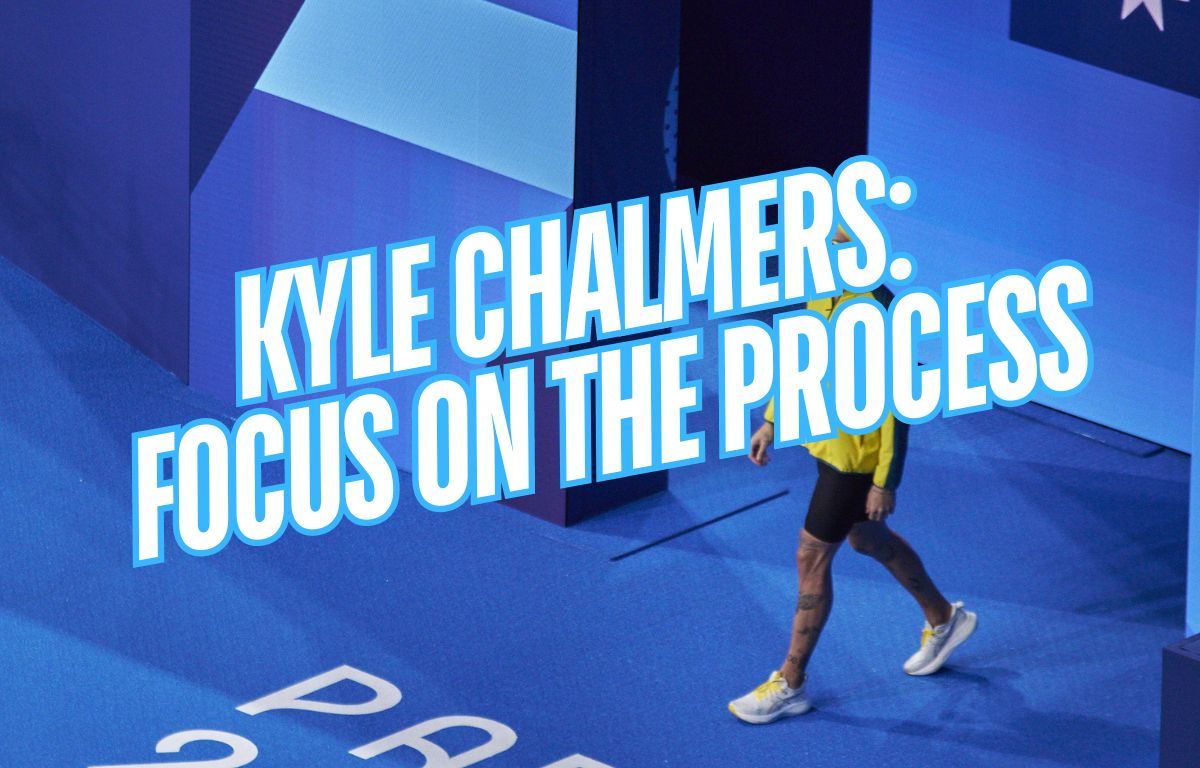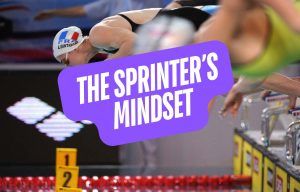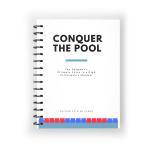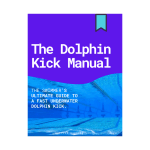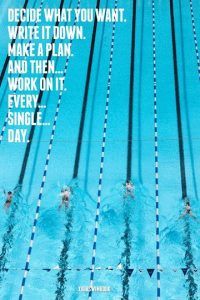Curious how Kyle Chalmers, Olympic legend, builds goals for competition? Here’s a look at the goal setting engine of an Olympic gold medalist.
Swimmers love their goal-setting. There are so many ways and things that we can use as motivational fuel, including:
- Gold medals
- Cuts, whether that’s nationals, national team, Olympic trials, Olympic, Junior O’s, AAA’s, and on and on down the line.
- And of course, the biggie: Personal best times!
These types of goals, outcome goals, are important and act as a North Star for our swimming and daily routines.
The outcome goal helps get our butts out of bed at 4:48 am on a cold December morning for practice. Keep us grinding during training camp. And help us shave off unhealthy lifestyle habits outside the pool, too.
But having a big, nasty goal is not enough.
There’s gotta be a healthy element of process to it.
After all, if you don’t have a framework for how you will achieve the goal, is it really a goal?
Or is it just wishful thinking?
How Kyle Chalmers Sets Goals for Olympic Glory
Australian Kyle Chalmers is a monster in the pool, consistently sawing down the competition in the back half of the 100m freestyle, the blue ribbon event at the Olympic Games.
At the Rio Games, he won gold in the 100m free.
In Tokyo and Paris, silvers.
Along with numerous relay and World championship medals, Chalmers has relied on a goal setting framework that breaks down his “perfect” performance into bite-sized steps.
“I have goal times for every aspect of my race,” says Chalmers. “Dive, turn, finish, first 50 meters, second 50 meters, everything you could imagine, and I know that if I get all these things little things correct, then my time at the end of the race will be what I want it to be. For me it’s about focusing on the process and then I know I’ll achieve the outcome I want.”
[Emphasis mine.]
I absolutely love this mental framework as it takes something big and ambitious—win gold at the Olympics—and slices it up into smaller, actionable, specific, process-based steps that Chalmers can control.
[It’s perhaps no accident that Nathan Adrian, who won the Olympic gold medal in the 100m freestyle at the London Olympics in 2012, also subscribes to this type of goal setting.]
Let’s break down this strategy so that you can apply it to your own goals in the pool, Olympic or not.
How the Process Outshines Result-Obsessed Thinking
A process-based mindset is something I evangelize for a lot in this newsletter and on my website.
Some of the reasons why include:
Reduces performance-crushing pressure.
Swimmers with big goals often fall into the trap of obsessing over the outcome at the expense of the process.
As if by just wanting and wishing for it harder than the swimmer in the next lane, their chlorinated dreams will come true.
Focusing on a process that you control removes pressure and anxiety that can kill performance.
Pressure can be a good thing—it can help swimmers push to perform at a higher level. But pressure in the form of expecting to be able to control things you don’t?
Not so much.
“Success means having engaged in the process correctly. Understand how the rhythm of life works, and not taking shortcuts.” – Aaron Pierson, 7-time Olympic gold medalist
Highly motivating.
A controllable process is extremely motivating. You focus on small, tangible wins, build momentum, and focus on growth and improvement.
And because you are steadily plodding forward, you find joy and satisfaction in the daily challenge of executing your process to the best of your ability.
This creates a powerful, steady stream of motivation that you control.
Increased mental toughness.
And finally, your process is yours. No one can screw with it or impede with it.
As a result, mental toughness shoots through the roof by reducing frustration when you swim into the inevitable adversity or challenges. Instead of giving up, you simply revert to your process.
How to Set Process Goals
The key to a process that works is breaking down your ideal performance (or workout) into clear, controllable steps.
I like to imagine it as a runway that accelerates you towards your goals.
As an example, instead of:
- “I want to have the best swim practice ever today.”
Your process runway would look like this:
- “Get to the pool 15 minutes early to do a dryland activation.”
- “Warm-up with intent and focus, visualizing how I want to perform during the main set.”
- “Do the main set with 10/10 focus and effort, no matter how yucky my stroke feels, what the set is, or how fast/slow I am swimming.”
- “Warm-down with excellent technique.”
The power in this simplified process is that everything is within your field of control.
It can be completed regardless of external expectations, how other swimmers are performing, the pool temperature, how your day went prior to practice, and so on.
It’s yours. 100%.
The Final Lap
“Focusing on the process” isn’t a guarantee that you are going to have a gangbusters swim practice every time you walk out onto the pool deck.
But it will ensure that you swim better more frequently.
And perhaps even more importantly…
Give you a framework that you can use to conquer pre-race nerves, master ever larger goals in the pool, and ultimately, swim faster than ever under the pressure of the bright lights.
Ready to take your mental game to the next level?
Swimmers frustrated with underwhelming performances on race day and want to conquer their mindset will love Conquer the Pool: The Swimmer’s Ultimate Guide to a High-Performance Mindset.
Written with the feedback of 200+ Olympians, NCAA champions, and head coaches, the book is the complete blueprint for an unbeatable mindset in practice and training.
From learning how to build a killer pre-race routine to everything you’ll ever need to master pre-race nerves, Conquer the Pool gives swimmers the tools to swim with total confidence on race day.
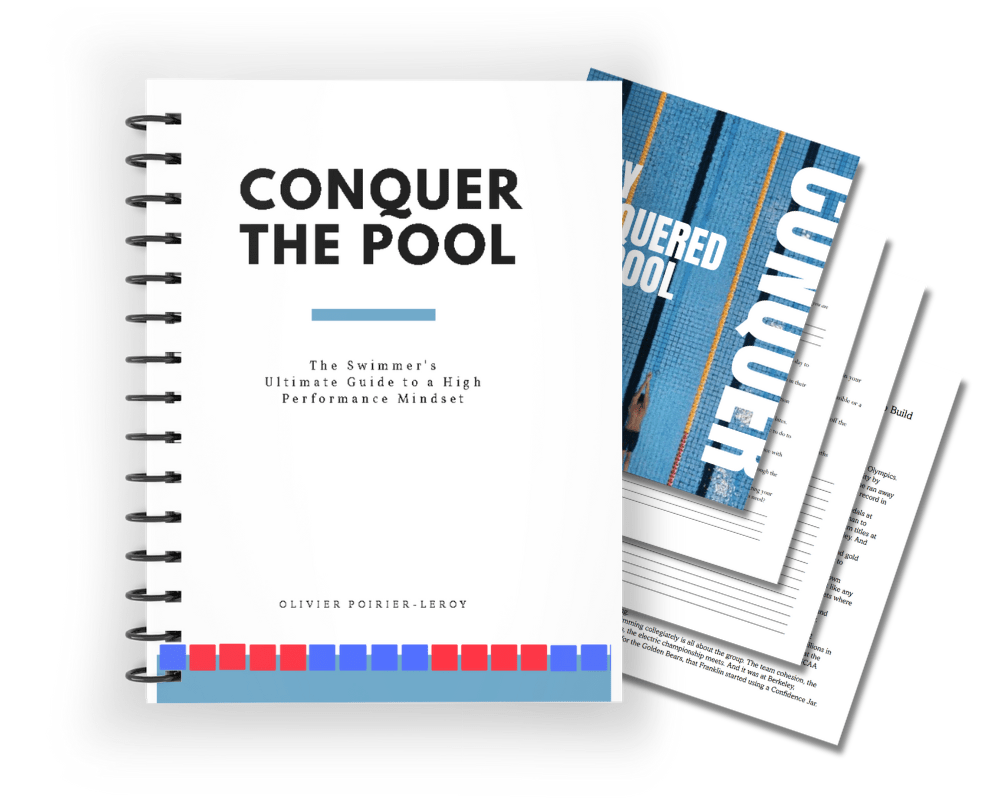
More Guides Like This
5 Myths About Having a Process-Focused Mindset. Having a process-based mindset in the water is just about the best thing you can do for your swimming. Here are some common myths of going all-in on the process.
How to Deal with Pre-Race Nerves at Swim Meets. Struggling to swim fast under pressure? Here are some tips for how to manage pre-race nerves on race day.

